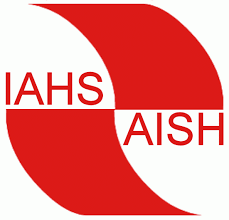|
W22 Graduate Schools in Water Sciences |
| Convener: Valérie Borrell Estupina | Co-Conveners: E. Servat , Denis Hughes , Claudio Caponi , Youssef Filali , Lisa Guppy , Christophe Cudennec , Benjamin NGOUNOU NGATCHA , Nidhi Nagabhatla |
|
Oral programme
/ Fri, 14 Jul, 08:30–12:30
/ Room C2
Poster programme
/ Attendance Fri, 14 Jul, 12:20–13:40
/ Room B2
|
Supporting commission(s) / organisations: Education WG, WMO, UNESCO-IHP, UNU
Vision and main goals of the Workshop:
The Graduate School (GS) in Water Sciences provides a continuous “Water” pathway over the Master’s and PhD programmes. The Graduate School team benefits the “networked” approach to water-related disciplines at PhD and Master’s levels, because of its proximity with the Research Laboratories. The team (teaching staff and students) benefits directly from this scientific knowledge production and access to a truly international thematic network. The Water Sciences theme makes a meaningful contribution to the production of cutting-edge interdisciplinary knowledge. Furthermore, the quality standard of the programmes are insured by a quality management process providing the Graduate School with a set of clear, transparent procedures governing admissions, supervision, degree award and career guidance.
The goal of the Workshop is (i) to assess the state of the art of the various Graduate School patterns in North and South alike, and (ii) to make recommendations on how to build a Graduate School in Water Sciences in so different contexts. These recommendations aim at allowing any university (North and South) to move from a classic Master’s degree and PhD continuum to a Graduate School taking advantage of the existing research teams and linking with current and forthcoming socio-economic expectations at local, national and international levels.
Structure and outcome of the Workshop:
A synthetic note, 2-3 pages maximum, summarizing your vision of a Graduate School in Water Sciences has to be sent to Valerie Borrell before December 10th 2016.
During the Workshop, there will be time slots allocated for oral and poster contributions.
The note has to be organized around 6 suggested items:
- Skills and knowledge acquisition through an interdisciplinary training based on a scientific approach and opened to society requests,
- Master’s Degree and PhD continuum taking into account various blending of learning methods to reach a high level training,
- International opening,
- Close links with scientific research to guarantee cutting-edge teaching,
- Interactions with economic and social challenges about water issues,
- Any other item you would consider as essential to establish a Graduate School in Water Sciences.
The Workshop session will be convened following 3 stages:
- Presentation of the selected Graduate Schools in Water Sciences.
- Comparison of the Graduate Schools in Water Sciences. This synthesis will be done by the Workshop organizers. It will put an emphasis on the various existing patterns, the links between specificities and contexts, their strengths and weaknesses, etc. There will be an overall oral presentation followed by a discussion.
- Collaborative session aiming at establishing guidelines to establish a Graduate School in Water Sciences in connection with all specific issues mentioned above. .
The Workshop expected deliverables are:
- Having “on line” all contributing papers sent to the organizers: on IAHS Web site (Education Group) and IM2E Web site,
- Submission of a paper to Hydrological Sciences Journal. This paper will summarize discussions and put forward conclusion and guidelines to establish Graduate Schools in Water Sciences. It will associate all the Workshop contributors.
